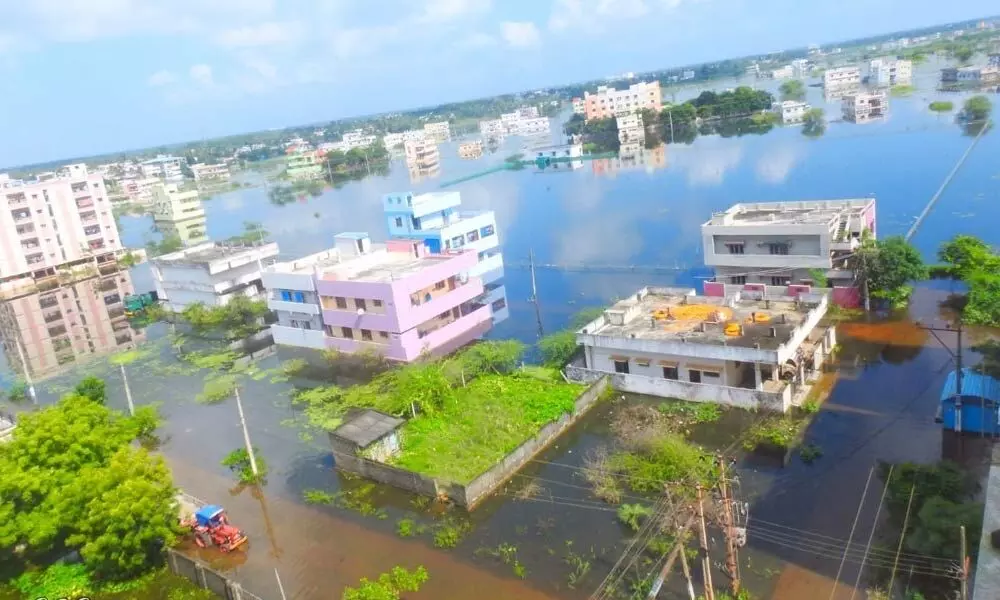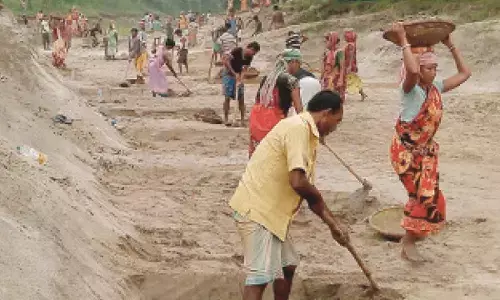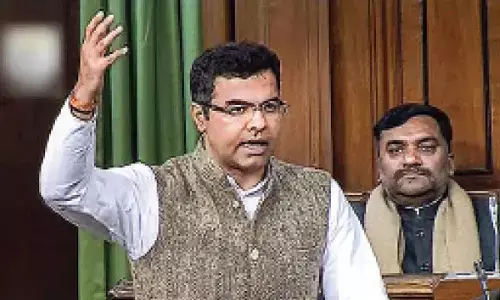Andhra Pradesh puts cyclonic damage at 4,450 crore

Submerged buildings in Kakinada rural (File picture)
- The Andhra Pradesh State Government has put the preliminary cost of damages at Rs 4,450 crore after an aerial survey by Andhra Pradesh Chief Minister YS Jagan Mohan Reddy.
New Delhi: Cyclonic effects and the resultant heavy rainfall have inflicted untold misery not only on the farmers of Andhra Pradesh but also on others in towns and cities, including in Vijayawada.
The State Government has put the preliminary cost of damages at Rs 4,450 crore after an aerial survey by Andhra Pradesh Chief Minister YS Jagan Mohan Reddy.
However, as the Ministry of Jal Shakti is advising putting in place a "flood-education" which is informal in nature from senior citizens to youngsters, it is time that the AP CM considers the same in the larger public interest, it is said.
Two pertinent points arise out of the situation which are not being considered for a long-term plan. Flooding not only dismantles the livelihood structure of households, but also brings in several other problems, which make living conditions extremely challenging. How to tackle such floods and who are to play a crucial role apart from the Government in providing immediate relief to the people?
While the role of the community is significant for its spontaneous action, the role of the government support is equally crucial, for its control over rescue and rehabilitation resources. However, the role of community support is found to be more significant, for its instantaneous involvement at the critical hours of flooding, whereas the government support, though very important, invaluably arrives late.
Reaching government relief is different from providing shelter to the ones affected at the earliest. Despite the best efforts of the authorities, there will always be affected areas where people need to be shifted to safer places at least. Relief is often far short of households' requirements and does not reach the needy.
The significance of community support is further reiterated, for its 'always ready to act' position.
At the critical moment of flooding, the community instantly comes forward with its limited resources to act before the arrival of other rescue agencies, including the government.
The role of community support is further vital for its knowledge of local resources and requirements of the affected households.
In coastal AP, knowledge and experience of households accumulated over the years from their frequent exposure to floods which enables them to devise ways and means to achieve livelihood resilience, could be used for the larger public good, it is said.
Those favouring such interventions say "why not equip the community with all the basic rescue and relief materials and proper training in rescue operations by the government. This would go a long way in saving the affected households from immediate collapse.
Flood experience of households and their knowledge work as strategic inputs in their livelihood resilience".
















